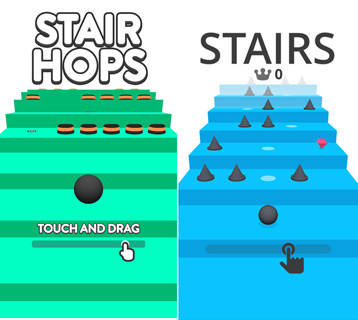Does Ketchapp clone games?

The good old horror story “If you release a successful game, Ketchup will copy it in a week” has long been around among game developers . Some believe that this is true; others are stupid gossip. This time she found a fresh, hot-tempered example worthy of discussion (I’ll immediately note that in this situation, not everything is clear).
Over the weekend, Burak Kurkcu, a developer from Turkey, attracted wide public attention. On his Twitter, he talked about how Ketchup publisher and developer Yuri Sanachev cloned his mobile game, Stair Hops . Moreover, unlike the original game, created in two months and released by Ketchapp a clone called Stairsended up in TOP-10 and brings a good income to the publisher.
From a legal point of view (and based on the similar experience of other developers), little can be done - the developer uses his own assets (images, sounds, code), therefore it is impossible to confuse games, and game mechanics are not subject to copyright (they can be patented and tried defend in court, however, this had to be done before the release).
Here one can argue whether the game of the "infinite jumper" genre is original in principle - the developer himself claims that before the release of his game there were no analogues in the App Store.
Moreover, if we carefully look at other applications of Yuri , we will see that at the same time as the author of the original, he released another"Infinite jumper" , Hop , based on a finished project from the Unity Asset Store , which makes this issue even more confusing.
In the comments, another developer gave another example of a clone of his application, also released by Ketchapp (which, by the way, has been owned by Ubisoft since September 2016):

It is known that the popular game Clash Royale was first cloned in less than a month after its release, and today there are many clones of this game - after all, their clone creators do not have to spend money on design and inventing game mechanics.
On the other hand, if game mechanics and ideas became the subject of copyright, then developers would be forced to pay royalties for simple game actions (for example, moving a player around the screen or jumping).
Do you think this approach to business is ethical?
